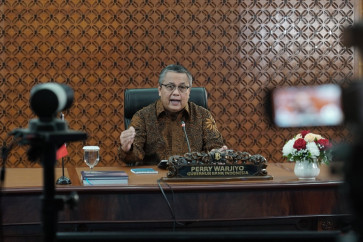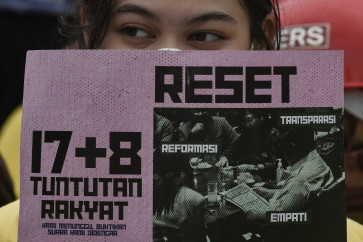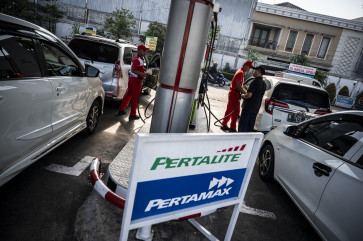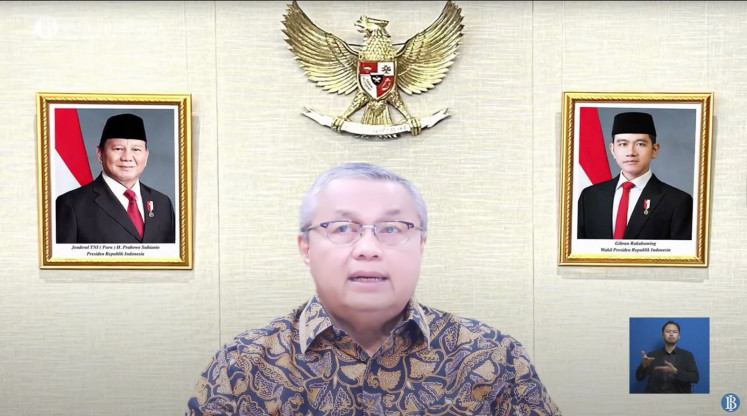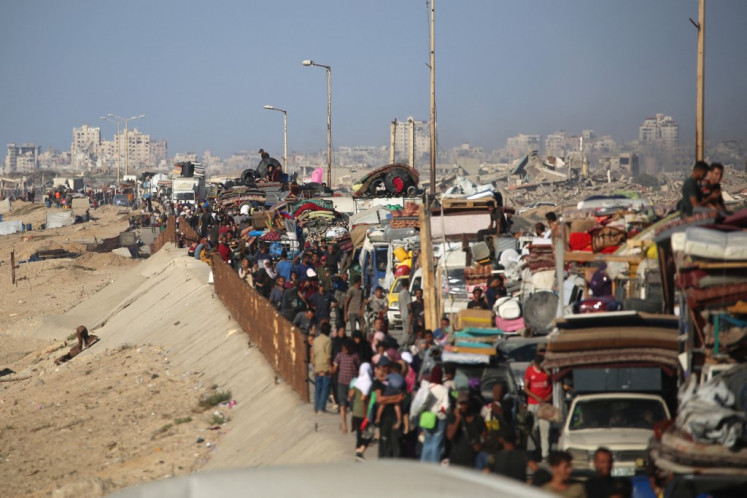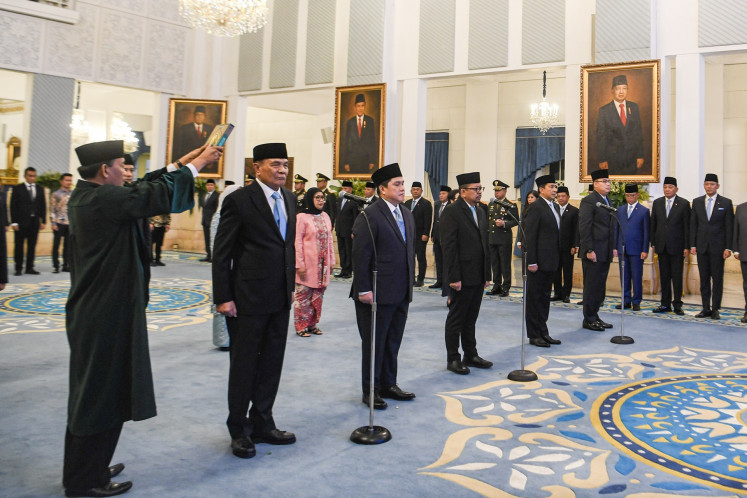Popular Reads
Top Results
Can't find what you're looking for?
View all search resultsPopular Reads
Top Results
Can't find what you're looking for?
View all search results1965 survivors want UN to probe genocide
Survivors of the 1965 mass killings are pressing the government to allow a UN special rapporteur to enter the country and to launch an independent investigation into one of the darkest chapters of the nation’s history
Change text size
Gift Premium Articles
to Anyone
S
urvivors of the 1965 mass killings are pressing the government to allow a UN special rapporteur to enter the country and to launch an independent investigation into one of the darkest chapters of the nation’s history.
Amid the government’s inaction, efforts to bring the case under an international spotlight have continued, with members of the 1965 Murder Victims’ Research Foundation (YPKP 65) now calling on the international body to probe the 1965 purge that involved the summary executions of about 500,000 people accused of being linked to the defunct Indonesian Communist Party (PKI).
YPKP 65 is an organization representing survivors of the purge.
“We have no other option but to involve the international community,” YPKP chairman Bedjo Untung said on Wednesday.
“We do not intend to shame the country by internationalizing the case. On the contrary, we want to protect the image of the country by having it honestly face its own dark history and resolve it,” he added.
YPKP 65’s move came after the International People’s Tribunal on the 1965 crimes against humanity (IPT 1965) announced its plan to take its verdict to the UN Human Rights Council’s (UNHRC) upcoming Universal Periodic Review (UPR) and to the UN Office of the High Commissioner for Human Rights (OHCHR).
The IPT 1965 concluded in July that the Indonesian government had committed acts of genocide, as stipulated in the 1948 International Genocide Convention, during the 1965 communist purge.
Indonesia, according to the IPT ruling, was bound by the 1948 Genocide Convention under international law. The acts committed by the state, it says, had targeted a significant and substantial section of the Indonesian nation, which should have been protected according to the Genocide Convention.
Bedjo, who was jailed without trial for nine years, said that he was aware that it was perhaps a long shot to ask the government to allow a UN special rapporteur to enter the country and conduct a probe into the 1965 purge. That said, he said he was hoping the UN would be more proactive in pushing the Indonesian government.
The government had officially invited two UN’s special rapporteurs to enter the country in the past.
The government invited then UN special rapporteur on violence against women Radhika Coomaraswamy to investigate the rapes that occurred during the 1998 riots. Then UN special rapporteur on torture, Manfred Nowak, was also allowed to enter the country in 2007 to conduct an independent investigation into the conditions of prisons and the treatment of inmates in the country.
Earlier this year, the government initiated a symposium to allow state officials, victims, historians, researchers and human rights advocates to talk about the purge.
The initiative was one of the programs set up by the Jokowi’s administration to affect reconciliation.
Following the symposium, the government also planned to exhume mass graves scattered at all across the archipelago in an effort to find more evidence of the mass killings, with then coordinating political, legal and security affairs minister Luhut Pandjaitan asking for the public to provide information on the whereabouts of mass graves.
YPKP 65 itself has conducted field research and documented at least 122 mass graves. It said it has tried to reach out to the government to pass on the information, but to no avail.
Since the symposium, nothing has been heard from the government about its plan to put the issue of the 1965 purge to rest.
In order to discuss the reconciliation process, YPKP 65 wrote a letter to Wiranto early last month to request a meeting. The organization, which is made up of people who are 70 years old and older and who survived the cruelty imposed on them during the 1965 communist purge, received an official letter from Wiranto’s office on Sept. 13, rejecting the request.
Quoting the letter, Bedjo explained that the rejection was made because the state was still considering everything regarding the incident.
Wiranto has said that he was committed to resolving the case. On the sidelines of a meeting at the House of Representatives last week, he said that he was aware of a lack of public trust in him over resolving the case and he therefore pledged that he would settle the issue.
But Wiranto’s promise apparently failed to assure the survivors.
Harry Wibowo, who was involved in the IPT 65, said the government’s refusal to meet survivors reflected the lack of transparency of the reconciliation process it initiated.
“We have the right to know the process because it is about us,” Harry said. “Thus, the involvement of a third party will make the problem as transparent as possible.”


